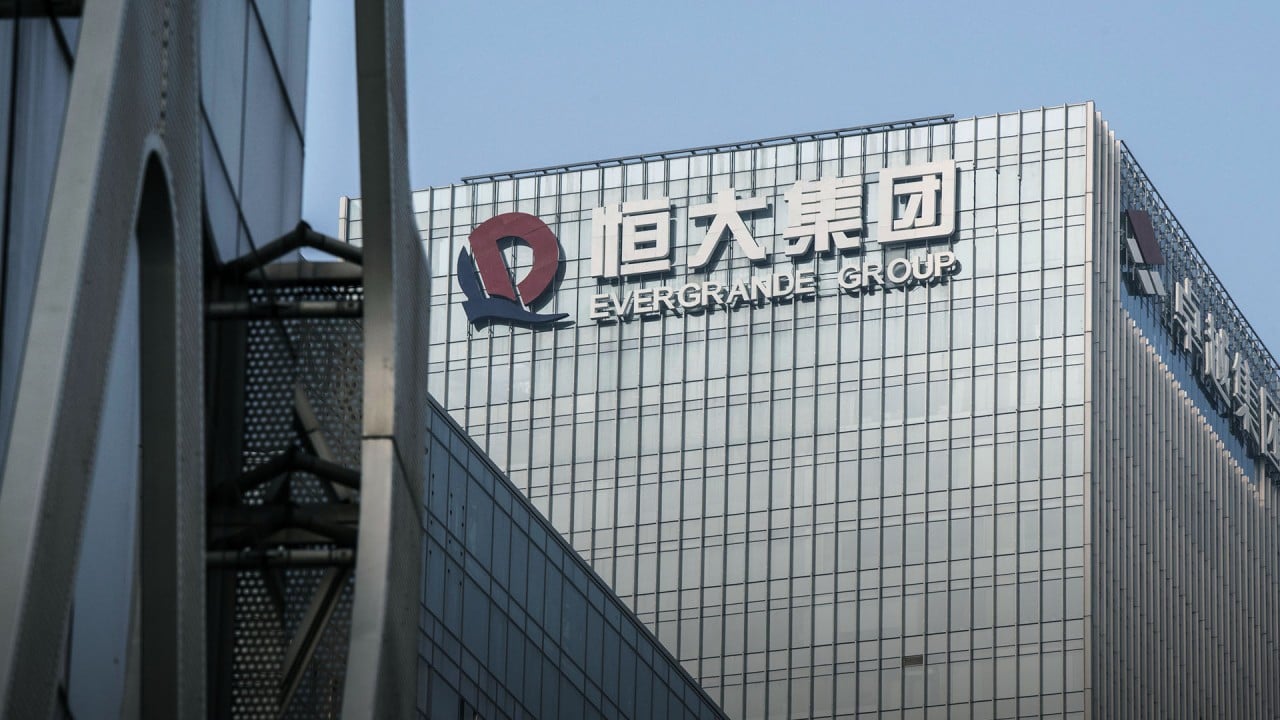Buy Chinese developers? Mortgage boycott suggests stock rebound is built on fragile confidence
- An index tracking 112 mainland property stocks has surrendered all of this year’s gains, after rising as much as 25 per cent between January and early April
- The latest mortgage boycott has added a new challenge for policymakers trying to steady the economy hit by China’s zero-Covid strategy

Investors who profited from bets on rock-bottom property stocks have realised the new-found optimism in the industry is simply too fragile. A mortgage boycott against stalled projects has swiftly wiped out all of this year’s winnings.
An index tracking 112 listed mainland developers including China Vanke, Poly Developments and China Merchants Shekou Industrial Zone has surrendered all of the gain this year, after rising as much as 25 per cent between January and early April, according to data provider Shanghai DZH.
In Hong Kong, the Hang Seng Mainland Property Index has declined 12 per cent over the past four weeks, when homebuyers in more than 90 cities threatened to stop servicing their loans in protest. Huang Hai, a star manager at Wanjia Asset Management, slashed his holding of property stocks last quarter, while some brokers turned bearish on the sector outlook.
The crisis reflects “challenging liquidity conditions for private developers and weak consumer confidence,” said Iris Tan, an analyst at Morningstar in Shenzhen. “We expect the event might further dampen homebuyer sentiment, and [delay] property sales recovery in the near term.”
The event underlines the industry frailty, widening cracks since Beijing unleashed its “three red lines” policy in August 2020 to rein in excessive debt among the nation’s weakest developers. The policy has spawned a credit squeeze, unprecedented bond defaults and a slump in home sales in the US$60 trillion domestic housing market.
Buyers have railed against cash-strapped developers in 100 unfinished projects across 19 provinces, Morningstar said. As much as 2.4 trillion yuan (US$147.8 billion) of mortgage loans, or 6 per cent system-wide, could be exposed to default risk, Goldman Sachs estimated. The property sector contributes a quarter of the economic growth.
The crisis is the last thing Beijing would want to add to its list of headaches. Its zero-Covid policy and tough curbs have been blamed for the stop-start pressure on the economy, which grew last quarter at the slowest pace in two years.
The real concern is with the remaining 99 per cent of buyers who are still paying for their mortgages on yet-to-be-delivered homes, according to Wang Qi, chief executive officer at MegaTrust Investment in Hong Kong. China needs to prevent the boycott from infecting existing and potential homebuyers, he added.
“Will they lose confidence in the Chinese real estate market?” Wang said. “I see a major deflationary impact from the real estate slowdown, which means China will need to unveil even more stimulus to prevent an economic hard-landing.”
For investors, cheap valuation is one reason to remain upbeat on property stocks. Ping An Securities and Guosen Securities said the sector will manage to navigate the latest test, with the help of more policy support for a sector deemed too important to fail.
Mainland-listed property developers trade at an average 43 per cent discount to their net asset value, the cheapest sector after banking stocks, according to data compiled by Shanghai DZH. The discount is at a record-low 78 per cent in a Bloomberg index of 33 stocks mostly traded in Hong Kong.
The worst for the property market may not be over, according to the latest industry sales data. Home sales fell 42 per cent in the two weeks of July, deepening from an annual slide of 17 per cent in June, according to Wind Information. While sales in 2021 increased 4.8 per cent from a year earlier to 18.2 trillion yuan, the growth pace was the slowest in at least five years.
Wanjia Asset’s Huang cut his holding of property stocks to 24 per cent last quarter from 37 per cent on March 31, his latest fund report showed. China Vanke slipped out of his top 10 holdings, from third ranking in the preceding quarter.
His US$114 million Wanjia Selective Equity Fund has gained 29 per cent this year and outperformed 98 per cent of rival funds over the past year, according to Bloomberg data.
CCB International, the brokerage unit of China Construction Bank, has turned cautious about property stocks, citing the credit squeeze will dent the weak recovery in home sales. Saxo Markets, a Danish brokerage, advises clients to avoid smaller privately owned developers that are more vulnerable to liquidity crunch. Banks still prefer to lend to bigger state-owned developers, such as China Overseas Land and Investment and Poly Developments, it added.
“We believe the recovery in home-buying sentiment will be affected,” said Lung Siufung, an analyst at CCB International in Hong Kong. “Other less-distressed developers could be imperilled by contagion risk.”

